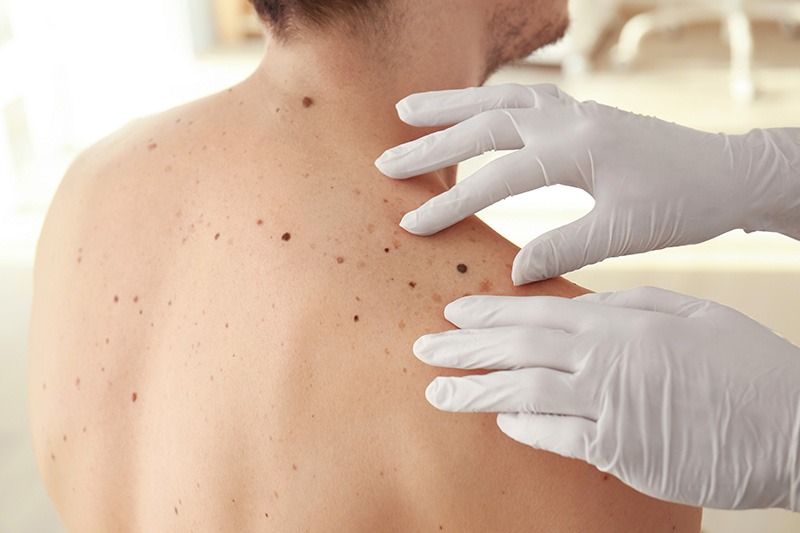
Basal Cell Carcinomas (BCCs) are the most prevalent skin cancer in Australia. In fact, Queensland alone has nearly double the national average of BCC cases. But what exactly are BCCs, how can they affect you and what are the basal cell carcinoma treatment options?
Why it’s important to treat basal cell carcinomas
To begin, it’s important to understand that BCCs differ from melanomas in their behaviour. Unlike melanomas which can spread throughout the body, BCCs tend to remain localised. However, if left untreated, they can grow bigger and cause significant problems. These skin cancers often manifest as non-healing sores that are not only painful but also bleed. If you’ve been advised to get treatment for a basal cell carcinoma, don’t put it off.
What do they look like?
BCCs can present differently in different individuals. These skin cancers often appear as small, shiny or translucent bumps on the skin, similar to a pearly or waxy nodule. They can be pink, red, or brown in colour and have a slightly raised or rolled edge.
In some cases, BCCs may also manifest as flat, scaly patches that resemble a scar or an irritated area. What sets BCCs apart is their tendency to develop open sores that don’t heal or crust over, the potential to bleed. A thorough assessment by a trained skin cancer doctor is crucial for accurate diagnosis and appropriate treatment.
Can you find BCCs on your own?
Regularly checking your skin for any changing, abnormal, or new skin lesions is crucial. Pay attention to any sores that don’t heal or any growths that appear out of the ordinary. However, it’s important to remember that self-examinations are not foolproof.
For a thorough assessment, it’s recommended to consult with a trained skin cancer doctor. Their expertise and experience ensure a comprehensive evaluation of your skin, increasing the likelihood of early detection and prompt treatment.

What happens if BCC’s are left untreated?
When allowed to progress further, BCCs have the potential to invade deeper structures beneath the skin. This becomes particularly dangerous when they occur in sensitive areas like the face and neck. Fortunately, most BCCs can be effectively treated at our clinic before further complications arise. The key is early detection and intervention, as it’s easier to manage these cancers when they are small.
It’s worth noting that individuals who develop multiple BCCs often have significantly sun-damaged skin and pre-cancers. In such cases, management options exist to help prevent the development and reduce the risk of future BCCs. These options may include vitamin B3 supplementation, specialised treatments for sun-damaged skin, practising diligent sun protection measures, and regularly scheduling skin cancer checks.
What are the treatment options?
Treatment options for BCCs vary based on the size and severity of the tumour. In less advanced cases, creams, freezing, or simple excision may be sufficient to remove the cancerous cells. However, larger BCCs may require a more extensive excision procedure.

How can I prevent the development of a Basal Cell Carcinoma?
At SunLife, we understand the significance of comprehensive care and early intervention. That’s why we offer advanced skin cancer prevention, skin cancer detection, and skin cancer treatment. Our state-of-the-art technology enables us to detect even the most subtle changes in your skin, allowing for accurate diagnoses and personalised treatment plans. You can have peace of mind knowing that your skin’s health is in expert hands.
Remember, prevention is always better than a cure. By staying informed, regularly checking your skin, and seeking professional care, you are taking the necessary steps to protect yourself against the most common types of skin cancer, including BCCs. At SunLife, we’re here to support you every step of the way, providing comprehensive care and peace of mind. Together, let’s care for your skin health and well-being.
